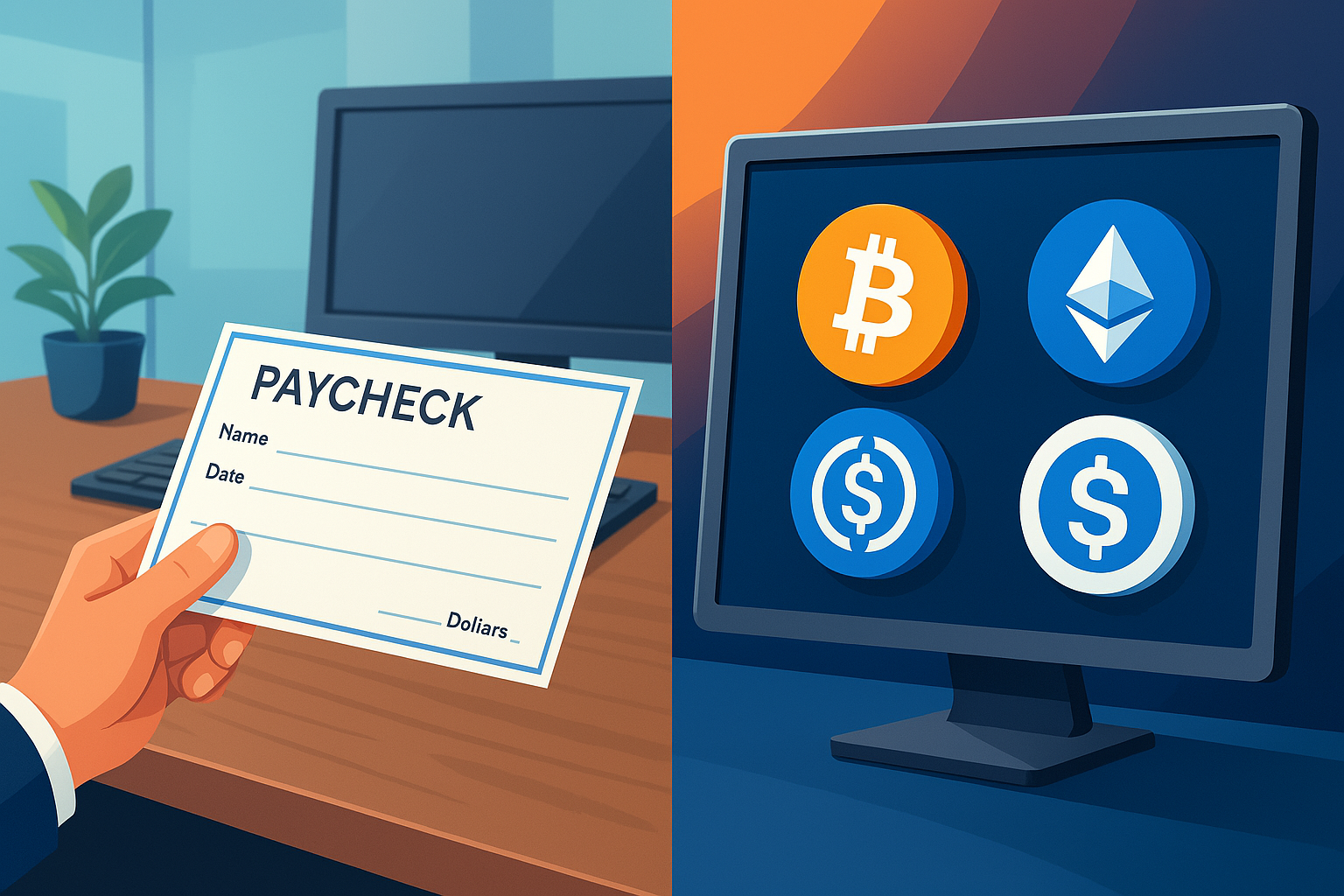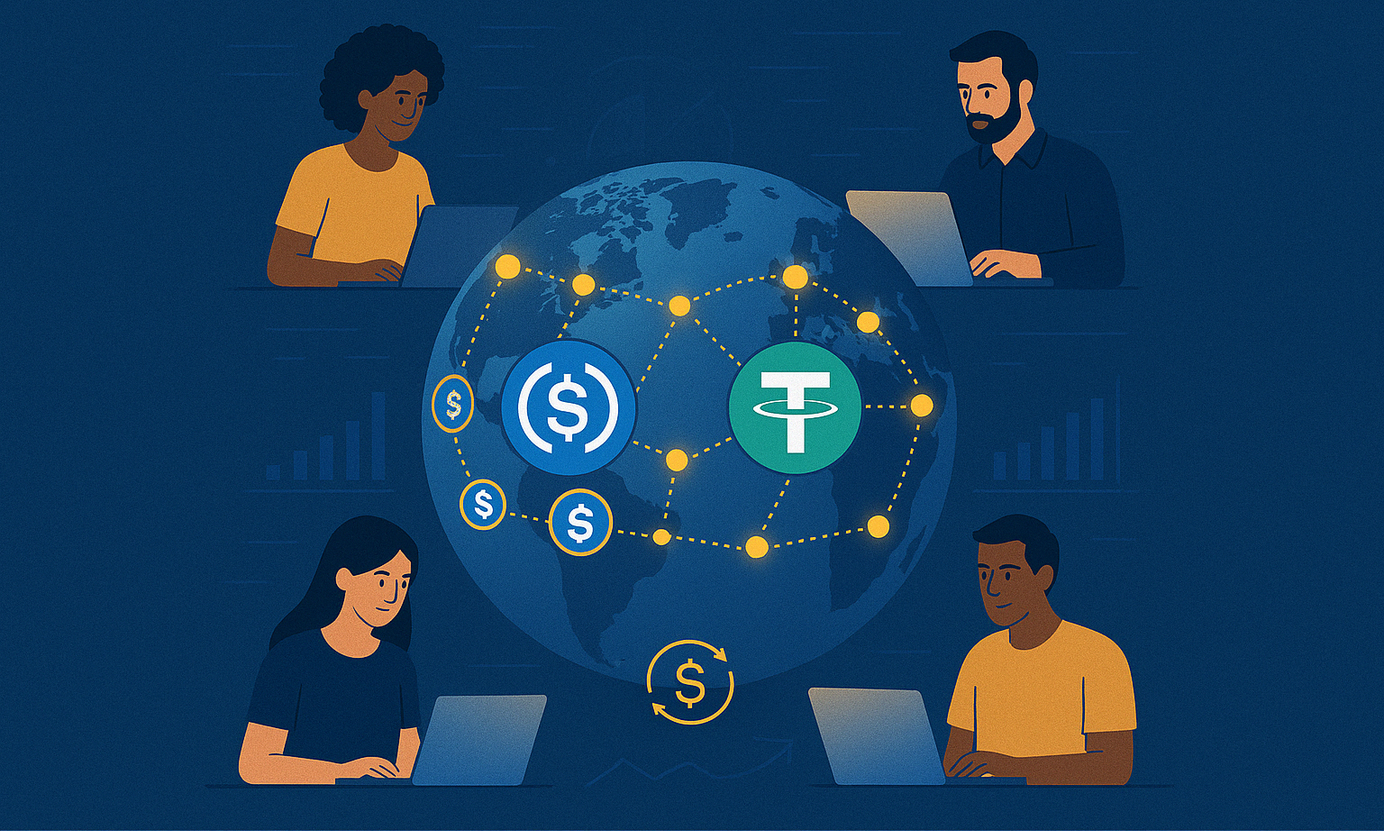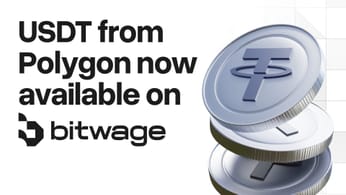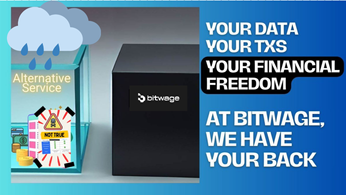
Can You Receive Your Paycheck in Crypto?
Discover the advantages and challenges of receiving your paycheck in cryptocurrency, with legal insights and how Bitwage facilitates hybrid payroll solutions while ensuring compliance.
Table of Contents
The idea of receiving your paycheck in cryptocurrency has gained tons of traction during the past few years and is becoming the norm in various countries.
Navigating the legal landscape and the practical challenges involved in getting your paycheck in crypto requires careful consideration. Let's break down the key factors and how platforms like Bitwage can simplify the whole process.
Crypto Paycheck: Legal Considerations and What the Law Says
It's important to understand what the law says in the country you live in. For the sake of example, we are going to break down what the law says in the U.S.
Federal Regulations (FLSA)
The U.S. Department of Labor mandates that wages must be paid in "cash or negotiable instruments," which excludes cryptocurrencies under current interpretations. This applies to minimum wage and overtime payments, meaning employers risk violating regulations if they pay non-exempt employees directly in cryptocurrency.
IRS Tax Treatment
The IRS treats cryptocurrency as property. Wages paid in crypto are taxed as ordinary income based on their fair market value at receipt. Employees also face capital gains taxes if the crypto’s value increases when sold.
State Laws
States like California and New York prohibit wage payments in non-cash instruments unless immediately redeemable at face value. Cryptocurrency’s volatility complicates compliance, as its value can fluctuate post-payment. Financial institutions play a significant role in regulating cryptocurrency and often impose restrictions on engaging with crypto, which can impact the ability to transact and pay wages in cryptocurrency.
Crypto Payments and Regulations
Crypto payments are becoming increasingly popular, and regulations surrounding them are evolving rapidly. In the United States, businesses must navigate a complex regulatory landscape to ensure compliance. The Financial Crimes Enforcement Network (FinCEN) mandates that companies adhere to anti-money laundering (AML) and know-your-customer (KYC) regulations when processing crypto payments. Additionally, the Securities and Exchange Commission (SEC) oversees crypto payments, particularly when they involve securities or investment products.
From a tax perspective, the Internal Revenue Service (IRS) treats crypto payments as taxable income. Employers are required to report these payments on Form W-2 and withhold income tax, Social Security tax, and Medicare tax. Employees, on the other hand, must report crypto income on their tax returns and are liable for capital gains tax on any profits realized from the appreciation of their digital assets. Understanding these tax laws is crucial for both employers and employees to ensure compliance and avoid potential penalties.
Global Payroll and Crypto Regulations
Crypto regulations can be challenging due to the varying laws and standards across different countries. To avoid fines, employers must ensure compliance with local tax laws, labor laws, and financial regulations when paying employees in cryptocurrency.
In the United States, the Fair Labor Standards Act (FLSA) requires employers to pay employees at least the minimum wage and overtime pay. Crypto payments must align with these regulations, ensuring that employees are compensated fairly and punctually. Employers must also be mindful of the tax laws governing crypto payments, ensuring that all taxable income is reported accurately.
Internationally, the regulatory landscape can differ significantly. For instance, in the European Union, employers must comply with the General Data Protection Regulation (GDPR) when processing employee data, including crypto payments. This adds another layer of complexity to global payroll systems, requiring employers to stay updated on the latest regulations to ensure compliance. By understanding and adhering to these diverse legal frameworks, employers can effectively leverage the benefits of cryptocurrency transactions.
Pros and Cons of Crypto Paychecks
There are a number of things to look at when getting your paycheck in crypto or paying out in crypto. Let's look at some pros and cons of crypto paychecks.
Advantages
- Speed and Cost Efficiency: Crypto transactions settle faster than traditional banking, especially for international payments. Fees are also 70-90% lower than traditional banking.
- Attracting Talent: Younger generations (36% of Millennials, 51% of Gen Z) express interest in crypto wages, positioning employers that offer crypto wages as innovative.
- Investment Potential: Employees may benefit from crypto appreciation, though this carries risk.
Challenges
- Volatility: A paycheck’s value could plummet hours after receipt, creating financial instability unless employees choose cryptocurrencies that are pegged to traditional currencies like USDT, DAI, or USDC.
- Compliance Risks: Evolving regulations and state-specific laws create legal gray areas.
How Bitwage Bridges the Gap
Bitwage offers the ability to pay your employees in crypto, fiat, and a mix of currencies while ensuring you remain compliant.
USD to Crypto Conversion: Employers can choose to pay wages in USD (in addition to using other means of payment like cryptocurrencies), which Bitwage converts to crypto and sends to your employees.
Global Accessibility: Employees receive crypto directly into their wallets, avoiding international transfer delays and the extreme fees tied to international transactions.
Regulatory Compliance: By keeping base wages in fiat, employers adhere to FLSA requirements while offering crypto as a voluntary benefit to their employees.
Conclusion
While direct crypto wages face legal hurdles, services like Bitwage enable employees to convert salaries post-payment, combining regulatory compliance with crypto’s benefits. For employers, this hybrid model offers a competitive edge in attracting tech-savvy talent while minimizing risk.
Bitwage not only ensures that you stay compliant but also works as an add-on to your existing payroll system. It's easy to set up, and you don't have to change your current payroll structure.
Are you ready to embrace the future of payroll?










